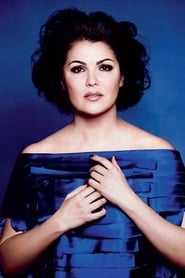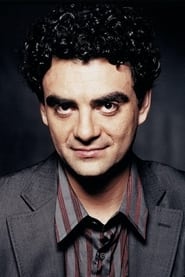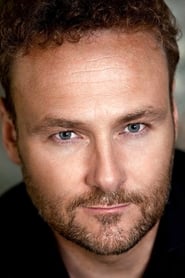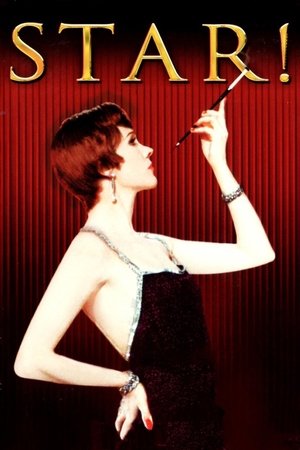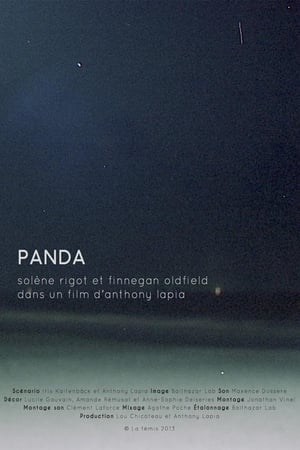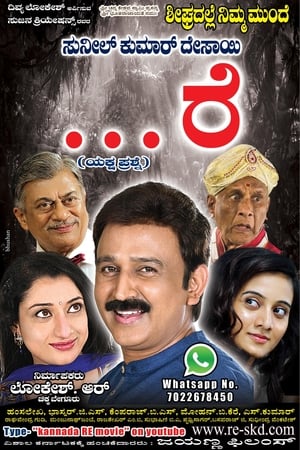
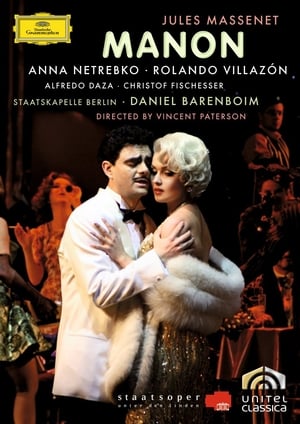
Massenet: Manon(2007)
Jules Massenet’s Manon at the Berlin Staatsoper
Massenet's opera centres on its charming but contrary heroine, the vivacious young Manon who longs for luxury and excitement. We first encounter her en route to a convent, where her family are sending her to be educated. Along the way, she falls in love with the young student Des Grieux, and, impetuously, runs off with him. She soon leaves him, however, to become the mistress of a rich nobleman. Thus begins her descent into criminality and depravity, all too soon dragging the besotted Des Grieux with her, until she is imprisoned. Despite its tragic story, the opera is full of French charm and vitality – typified by the ambiguous Manon herself. Her plight is touching because of the subtle play of innocence and calculation in her character. The score contains many sparkling arias and ensembles, moving rapidly from moods of exuberance to tenderness, with perfect dramatic timing. Recorded live at the Staatsoper Unter den Linden, Berlin, April/May 2007.

Movie: Massenet: Manon
Top 10 Billed Cast
Guillot de Morfontaine
Bretigny
Pousette
Rosette

Massenet: Manon
HomePage
Overview
Massenet's opera centres on its charming but contrary heroine, the vivacious young Manon who longs for luxury and excitement. We first encounter her en route to a convent, where her family are sending her to be educated. Along the way, she falls in love with the young student Des Grieux, and, impetuously, runs off with him. She soon leaves him, however, to become the mistress of a rich nobleman. Thus begins her descent into criminality and depravity, all too soon dragging the besotted Des Grieux with her, until she is imprisoned. Despite its tragic story, the opera is full of French charm and vitality – typified by the ambiguous Manon herself. Her plight is touching because of the subtle play of innocence and calculation in her character. The score contains many sparkling arias and ensembles, moving rapidly from moods of exuberance to tenderness, with perfect dramatic timing. Recorded live at the Staatsoper Unter den Linden, Berlin, April/May 2007.
Release Date
2007-05-09
Average
10
Rating:
5.0 startsTagline
Jules Massenet’s Manon at the Berlin Staatsoper
Genres
Languages:
FrançaisKeywords
Recommendations Movies
 6.7
6.7Carmen(fr)
A film version of the famous Bizet opera, where a soldier (Don Jose) falls in love with a beautiful factory worker (Carmen), but she does not reciprocate his feelings.
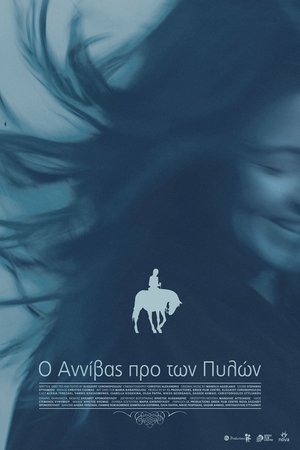 6.3
6.3Hannibal Before the Gates(en)
The scrappy 18-year-old daughter of a small-town prostitute storms the bastion of the rich and powerful in this drama set in the elite world of horse trials and show jumping. Sheer talent and an unbreakable bond with a temperamental thoroughbred may not be enough for Chara, who aspires to rise from stable hand to champion.. I
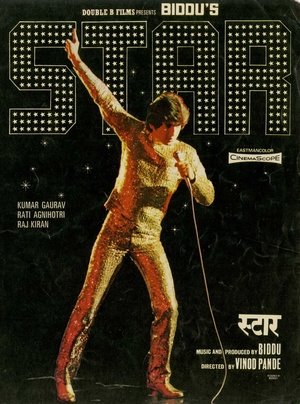 5.8
5.8Star(hi)
Dev Kumar Verma comes from a middle-class family and must find employment to support his dad and mom. Dev, however, has set his mind upon becoming a music sensation like Elvis Presley. He loses his job because of this, and refuses to work until and unless he gets a job to his liking, much to the dismay of his parents and his brother, Shiv Kumar. Dev does get employment at Charlie's Disco, where he meets with Maya and falls in love with her. When Charlie's Disco's competitor, Rana, finds out about Dev, he wants to hire Dev, but Dev decides to continue to work with Charlie's Disco, as a result Dev and Charlie get a beating by Rana's men, and Dev is unable to sing. After recuperating, Dev is devastated to find out that Maya and Shiv Kumar are in love with each other. What impact will this have on Dev and his brother on one hand, and what of his career in music?
Hannibal(ru)
A film about the Yakut rock musician Gavril Kolesov - Hannibal.
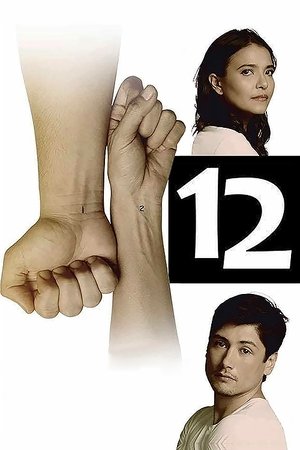 5.8
5.812(tl)
Anton and Erika started out as friends for five years and got into a romantic relationship for seven years. Anton is a commercial director while Erika is a former band member and becomes his stay-at-home partner. The day finally comes when he asks her to marry him.
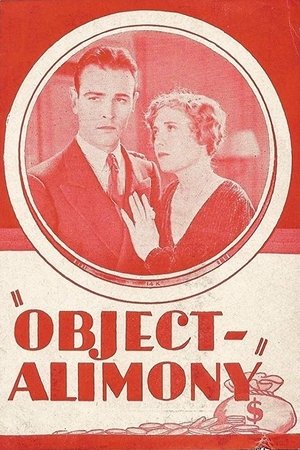 6.0
6.0Object: Alimony(en)
Ruth Butler, a clerk in an emporium, marries Jimmy Rutledge and thereby greatly displeases his mother, the owner of the emporium, because of Ruth's lowly origins. Renaud Graham, one of Mrs. Rutledge's friends, becomes interested in Ruth, forces his way into her apartment, and attempts to make violent love to her. Jimmy walks in on their embrace and, suspecting the worst, leaves Ruth. In the family way, Ruth finds refuge in a boardinghouse where she meets Al Bryant, an aspiring writer. Ruth tells Al her life story, and he makes it into a bestselling novel and then into a play. Jimmy sees the play and comes to his senses, winning Ruth's forgiveness.
 3.9
3.9Rewind 1984(en)
After going on a killing spree in 1984, the legend of the Pumpkin Man returns once again to slay more victims 30 years later.
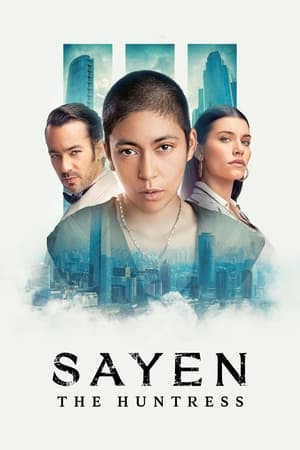 5.9
5.9Sayen: The Huntress(es)
Realizing that she cannot take down Fisk alone, Sayen teams up with an underground resistance group with a plan to expose and end Fisk's unchecked plundering once and for all.
 5.1
5.1Dr. Dolittle 3(en)
Lisa Dolittle sends her daughter to 'Durango', a Dude Ranch, to find herself. While there, she uses her talent to talk to the animals in order to save Durango from being taken over by a neighboring Ranch.
 7.5
7.5Gamera 2: Attack of Legion(ja)
A strange meteor lands in Japan and unleashes hundreds of insect-like "Legion" creatures bent on colonizing the Earth. When the military fails to control the situation, Gamera shows up to deal with the ever-evolving space adversary. However the battle may result in Gamera losing his bond with both Asagi and humanity.
 6.1
6.1Main Krishna Hoon(hi)
In answer to an orphan boy's prayers, the divine Lord Krishna comes to Earth, befriends the boy, and helps him find a loving family.
Florence Fight Club(it)
Four men decided to enter in the oldest Fight Club of the History, The Florentine Football tournament. A father and son, a black guy, an old champion and outsider clerk will enter in an arena of the time to win their fears, to go over their limits, to be heroes for a day.
 5.5
5.5The Mummy's Shroud(en)
Archaeologists discover the final resting place of a boy king, removing the remains to be exhibited in a museum. By disturbing the sarcophagus they unleash the forces of darkness. The Mummy has returned to discharge a violent retribution on the defilers as the curse that surrounds the tomb begins to come true. One by one the explorers are murdered until one of them discovers the ancient words that have the power to reduce the brutal killer to particles of dust.
 5.8
5.8Hello Again(en)
A suburban housewife chokes to death and is brought back to life by a spell cast by her wacky sister.
 6.3
6.3The Forbidden Legend: Sex & Chopsticks 2(cn)
Rich and powerful Simon Qing has been schooled in the ways of sex by his virile father, but is still a virgin. That is, until he meets his first love Violetta who has fun with him all over his father’s estate. Their love does not last, so Simon embarks on a journey. Along the way he meets the comely nun Moon whom Simon deflowers and then marries. He then becomes enamored of Golden Lotus but she is married to dwarf Wu Da-Lang.
Captain Nulle(lv)
Valdis Nulle is a young and ambitious captain of fishing ship 'Dzintars'. He has his views on fishing methods but the sea makes its own rules. Kolkhoz authorities are forced to include dubious characters in his crew, for example, former captain Bauze and silent alcoholic Juhans. The young captain lacks experience in working with so many fishermen on board. Unexpectedly, pretty engineer Sabīne is ordered to test a new construction fishing net on Nulle's ship and 'production conflict' between her and the captain arises...
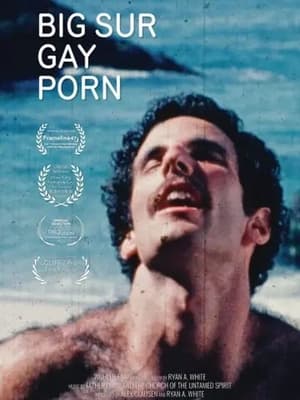 9.2
9.2Big Sur Gay Porn(en)
Cult filmmaker Tom DeSimone (Reform School Girls; Erotikus: A History of the Gay Movie) revisits the production of a lost gay film and resurrects youthful adventures on the California coast. From the creators of Raw! Uncut! Video!.
Similar Movies
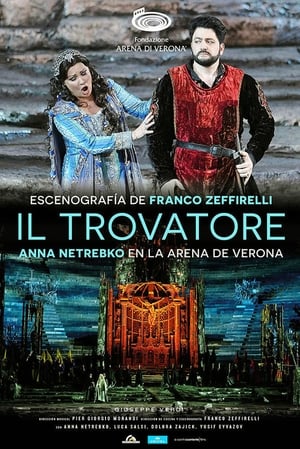 0.0
0.0Arena di Verona: Il Trovatore(it)
It's an event that draws many thousands of music lovers to one of the most beautiful cities in the world every summer: the opera season at the ancient Arena di Verona. The 2,000-year-old roman amphiteatre with its gigantic stage dimensions is one of the largest and best preserved Roman construction of its kind, and with over 22,000 seats it is undoubtedly one of the most spectacular open-air venues of the world! The revered master of opera Franco Zeffirelli, who died shortly before the premiere of Il Trovatore, created a legendary scenery with groups of giant sized armoured knights, a fortress turning into a luminous cathedral, an enormous choir, horses, breathtaking fights: “his perhaps best arena production” (Opernglas). It brings Anna Netrebko to the Arena of Verona where she is giving her much-anticipated debut in one of Giuseppe Verdi’s most popular operas.
 0.0
0.0The Metropolitan Opera: Don Giovanni(en)
Simon Keenlyside smolders dangerously in the title role of Mozart’s version of the legend of Don Juan, creating a vivid portrait of a man who is a law unto himself, and all the more dangerous for his eternally seductive allure. Adam Plachetka is his occasionally unruly servant Leporello. It’s when Giovanni tangles with Donna Anna (Hibla Gerzmava) that things start to unravel, aided by the reappearance of Donna Elvira (Malin Byström), who is determined not to let her seducer go. With Paul Appleby as Don Ottavio, Donna Anna’s eternally steadfast fiancé. Principal Conductor Fabio Luisi leads the Met Orchestra and Chorus.
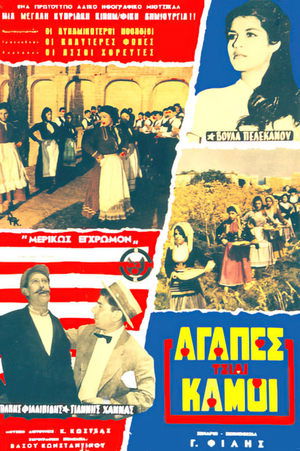 0.0
0.0Love Affairs and Heartbreaks(el)
This first film of Cyprus' first director, Giorgios Filis, depicts music and dance customs in the form and style of a folk opera, with traditional Cypriot dances and songs. The film consists of a folkloric inventory based on the folk culture of Cyprus, as well as on similar ritual happenings. The narration and dialogue are entirely in the Cypriot dialect and are characterized by a rhetorical and poetic mood.
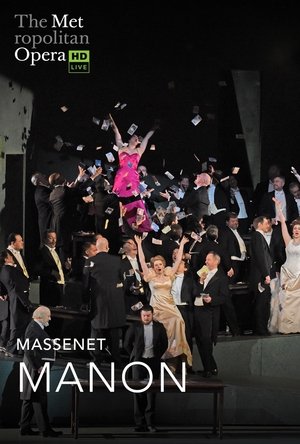 10.0
10.0The Metropolitan Opera: Manon(fr)
Massenet’s tale of passion, excess, and their consequences stars rising soprano Lisette Oropesa in the effervescent title role. Tenor Michael Fabiano is her ardent admirer, Chevalier des Grieux, with Maurizio Benini conducting Laurent Pelly’s enchanting production.
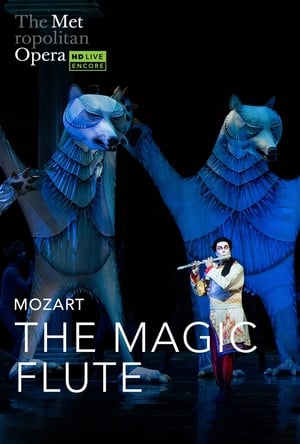 0.0
0.0The Metropolitan Opera: The Magic Flute(en)
Julie Taymor’s kaleidoscopic production returns to select cinemas this holiday season in an encore presentation of the company’s first-ever Live in HD transmission that includes tenor Matthew Polenzani, baritone Nathan Gunn, and bass René Pape in this abridged, English-language version of Mozart’s classic fable.
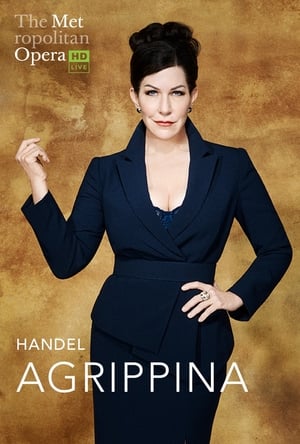 0.0
0.0The Metropolitan Opera: Agrippina(it)
As the imperious title empress, mezzo-soprano Joyce DiDonato leads the Met premiere of Handel’s tale of deception and deceit. Harry Bicket conducts Sir David McVicar’s wry new production, which gives this Baroque black comedy a politically charged, modern updating.
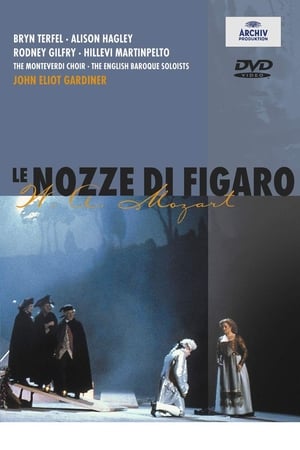 10.0
10.0The Marriage of Figaro(it)
This is a good video of "Figaro", but there are a couple of better ones available. The Bohm and the Pappano are better still due to the female members of the casts. The reason for buying this one is the "Figaro", Bryn Terfel. No one can top him today in that role. John Eliot Gardiner also stands out. Many of us have voiced their opinion that If the Metropolitan Opera would release it's 1998 version, that would be the one to get.
 0.0
0.0Puccini: Manon Lescaut(it)
All the throbbing eroticism—and ultimate heartbreak—of Puccini’s youthful score is unleashed by James Levine and his top-flight cast. Plácido Domingo is Des Grieux, the handsome, headstrong young aristocrat who falls head over heels for the enticing, impetuous Manon Lescaut (Renata Scotto). Manon returns his love, but her obsession with luxury ruins them both. Gian Carlo Menotti’s opulent production, with sets and costumes by Desmond Heeley, superbly captures the colorful world of 18th century France.
 6.8
6.8Così fan tutte(it)
Who loves whom in Così fan tutte, Mozart’s and Da Ponte’s cruelly comic reflection on desire, fidelity and betrayal? Or have the confusions to which the main characters subject one another ensured that in spite of the heartfelt love duets and superficially fleetfooted comedy nothing will work any longer and that a sense of emotional erosion has replaced true feelings? Così fan tutte is a timeless work full of questions that affect us all. The Academy Award-winning director Michael Haneke once said that he was merely being precise and did not want to distort reality. In only his second opera production after Don Giovanni in 2006, he presents what ARTE described as a “disillusioned vision of love in an ice-cold, realistic interpretation”.
 7.0
7.0Operette(de)
A musician is offered a job in Vienna as stage director, but his disagreements with the aristocratic opera manager end in abrupt firing in spite of a mutual attraction. He's quickly engaged by another theatre and becomes famous for his lavish stage productions and fine acting, which begins their golden age with Suppé and Strauss.
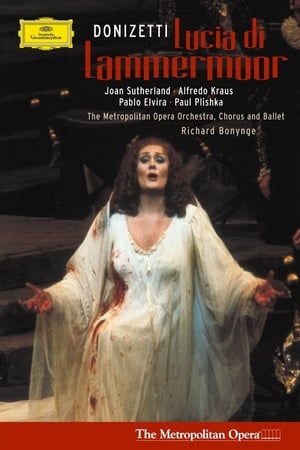 0.0
0.0Lucia di Lammermoor(it)
This telecast offers a rare opportunity to see the legendary Joan Sutherland in the role that first catapulted her to international stardom. She drove audiences wild by the way her opulent voice caressed the music’s long phrases and sprinted effortlessly through the fiendish runs, trills, embellishments and stratospheric high notes. One of the glories of the operatic world, her portrayal of Donizetti’s hapless heroine is a multifaceted and moving characterization. The incomparable tenor Alfredo Kraus is Edgardo, the man Lucia loves but cannot have. (Performance taped November 13, 1982. Broadcasted September 28, 1983.)
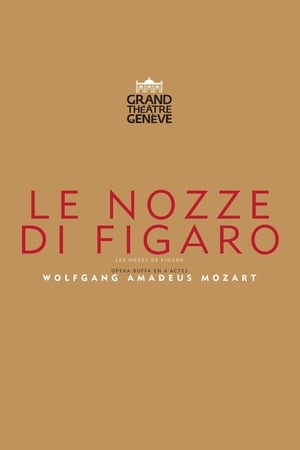 0.0
0.0The Marriage Of Figaro - Grand Théâtre de Genève(it)
The production bears the imprint of the conductor, Marko Letonja, and the director, Tobias Richter, whose understanding is ideal: both breathe a troupe spirit - specific to comedy - into this heterogeneous cast, which brings together young and old. Both give as much importance to recitatives as to arias and ensembles.
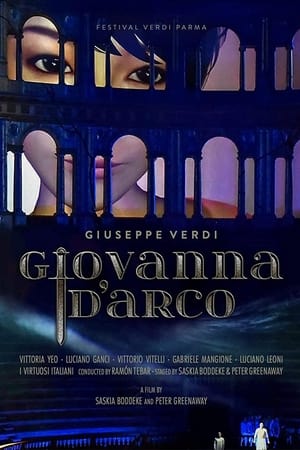 0.0
0.0Giovanna D'Arco(en)
With more than 50 years of experience as film director, Peter Greenaway (Nightwatching, Eisenstein in Guanajuato) combines the worlds of film and opera at the Verdi Festival in Parma, demonstrating what magic those two can do together with an all new approach to Giuseppe Verdi's Giovanna d'Arco, staged and edited by himself and his wife, Saskia Boddeke. The opera's libretto is based on Friedrich Schiller's 'The Maid of Orleans'. It tells the story of the French national hero Jeanne d'Arc, who defends her country against the English troops during the Hundred Years' War. Constantly torn between her humble roots, her love for King Charles VII and her heavenly task to fight for France, she gains eternal glory by giving her life in the final, victorious battle against England.
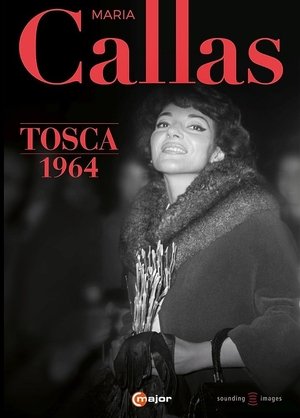 0.0
0.0Maria Callas Sings Tosca, Act II(en)
At the beginning of 1964, the music world experiences something completely unexpected. Maria Callas returns to the opera stage as the prima donna. Her “Tosca” at the Royal Opera House becomes a sensation. Maria Callas wants to show everyone once again that she deserves the title of “prima donna assoluta.” On the condition that star director Franco Zeffirelli take over the direction, the exceptional singer agrees to sing the role of Tosca. The BBC recorded the 2nd act of the opera for television. It is one of the most dramatic acts in opera history: in order to free the painter Cavaradossi from the hands of torturers, Tosca ends up murdering the police chief Scarpia. The film footage is one of the rare opportunities to see Maria Callas in an opera performance and to experience her highly emotional performance art and vocal abilities...
 8.1
8.1Die Walküre(de)
The gorgeous and evocative Otto Schenk/Günther Schneider-Siemssen production continues with this second opera in Wagner’s Ring cycle. Hildegard Behrens brings deep empathy to Brünnhilde, the favorite daughter of the god Wotan (James Morris) who nevertheless defies him. Morris’s portrayal of Wotan is deservedly legendary, as is Christa Ludwig, as Fricka. Jessye Norman and Gary Lakes are Sieglinde and Siegmund, and Kurt Moll is the threatening Hunding. James Levine and the Met orchestra provide astonishing color and drama. (Performed April 8, 1989)
 7.5
7.5Siegfried(de)
Siegfried is the third of the four operas that constitute Der Ring des Nibelungen (The Ring of the Nibelung), by Richard Wagner.
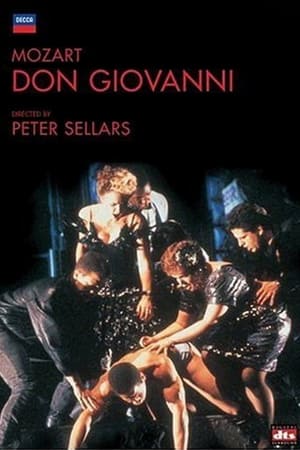 7.0
7.0Don Giovanni(it)
This production was originally staged for the Pepsico Summerfare Festival, The International Performing Arts Festival of the State University of New York at Purchase. Leaving the lyrics in their original Italian, acclaimed American director Peter Sellars transports Wolfgang Amadeus Mozart's "Don Giovanni" to a modern-day metropolis, nestling the opera's beloved characters among the brownstones of New York City's Harlem. Sellars's contemporary retelling of a classic musical tale is one of three performances in a Mozart series that also includes "Le Nozze di Figaro" and "'Così Fan Tutte."
 5.5
5.5Puccini: Turandot(it)
Franco Zeffirelli's magnificient staging of Puccini's final opera - a fairy tale set in a mythical China - is one of the most popular in the Met repertory. In this Live in HD production, Maria Guleghina takes on the title role and Marcello Giordani is Calaf, the unknown prince. Marina Poplavskaya and Samuel Ramey co-star, and Andris Nelsons conducts in his Met debut.
 7.1
7.1The Phantom of the Opera(en)
The deformed Phantom who haunts the Paris Opera House causes murder and mayhem in an attempt to make the woman he loves a star.
